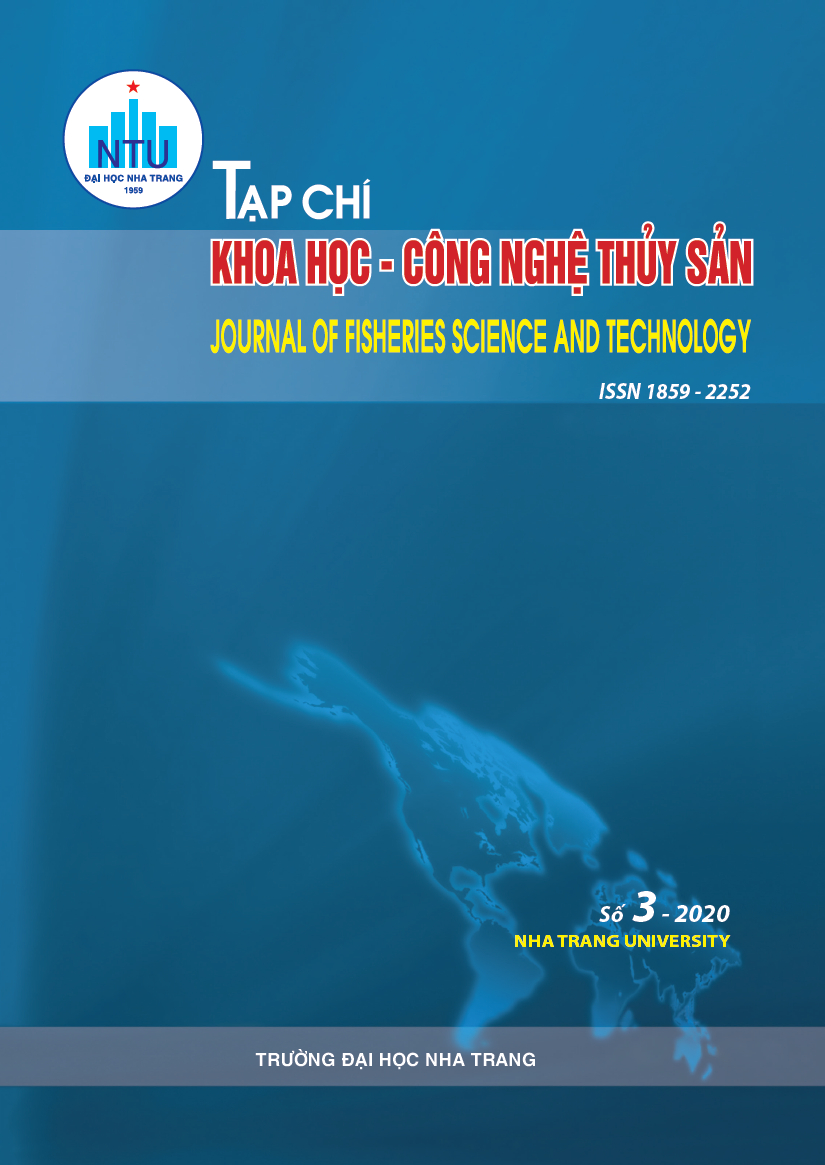##plugins.themes.huaf_theme.article.main##
Abstract
An experiment on soft-shell mud crab production in recirculatingtank system was conducted at thewet laboratory of the Ba Hai Company in Dong Hoa district, Phu Yen province. There were 7 dietary treatments including 4 types of fresh trash fish (ponyfish, anchovy, sardine and squid) and 3 semi-moist pelleted feeds (CB1, CB2 and CB3). Each treament was in triplicate. After 5-week experiment, the result showed that the survival of the crab fed on CB2 diet (40% pony fish + 40 % Acetes shrimp powder + 18% feed additives + 2% Vitamins and minerals) was the highest (95%) which significantly differed from those fed on the other diets (88-91%) (P<0.05). The result also showed that the rate of moulting was lowest with the crab fed on anchovy (73%) which was significantly different with those fed on the other diet (83,3-87,5%) (P<0,05). It was withdrawn from the experimental result that rearing soft-shell mud crab in the recirculating tanks using CB2 diet resulted in the highest survival and the moulting rates.
Keyworks: Soft-shell mud crab, Scylla sp., recirculating tank system, feed.

